Can coffee improve your cycling performance?

It’s no secret that a coffee stop during a long bike ride is almost an obligation for many cyclists. Some start their ride with an espresso, some finish it with a foamy latte, and some just need any type of coffee, because it’s so good!
It all started in the late 1960s and early 1970s when Italian espresso machine manufacturer Fabbrica Apparecchiature Elettromeccaniche e Affini (or FAEMA), sponsored the eponymous Faema cycling team, which included Belgian cyclist Eddy Merckx.

Merckx is widely recognised within the cycling community as the greatest cyclist of all time. His professional career spanned 13 years, during which he won a record 11 Grand Tours. He was a part of the Faema team for two years, from 1968 to 1970. Despite the fact that FAEMA had sponsored cycling teams before, Merckx was arguably the most popular rider that a coffee company had ever sponsored.
Although the relationship between coffee and cycling seemed to really pick up in the latter half of the 20th century, it has always been about more than coffee companies sponsoring teams. Cafés and espresso bars have historically offered cyclists a place to briefly socialise and relax – a quick stop on a long ride – but they are also a key part of what is referred to as “the coffee ride”. As coffee culture has evolved during the years and cyclists seem to have a special bond with it, let’s take a look if there is some science or research underneath it as well!

Caffeine is a recognised trade tool of the cyclist. Caffeine has some clear and obvious benefits to bike riders, it's a mild central nervous system stimulant so can improve your alertness and concentration and perk you up if you are feeling tired or lethargic, it prompts the release of adrenaline for energy,” said the British Coffee Association. This makes it perfect for endurance sports.
There has been a large number of studies focusing on the effects of caffeine on athletic performance over the last couple of decades. So many studies that WADA (World Anti-Doping Agency) set a precautionary limit on its consumption to about eight shots of espresso per day. Thankfully, this limit was removed in 2004. Still, even newer studies show an average benefit from caffeine consumption between 2-5% across a range of protocols and doses.
One of the supposed mechanisms explaining how caffeine can help in sports is increased fat metabolism and glycogen preservation. This would be especially useful for endurance racing, when cyclists need to tap into their fat reserves for a constant stream of energy, while saving the glucose boost for the final sprint to the finish.

Sports nutritionist Tim Lawson (Secret Training Ltd, previously of Science in Sport), says that “caffeine by itself can promote fat metabolism and retain muscle glycogen”, so a black coffee before a fasted ride in the morning may increase the amount of fat you burn.
However, an over-reliance on caffeine can compromise your sleep quality, which will alter hormone levels and reduce your ability to process carbohydrates, possibly sending you on a downward spiral. Instead, go carefully with caffeine to really get the benefit when you need it,” he advises.
But as the study of brain and performance is still in it’s early phase, there are theories that contrast with this method and recent research disputes that caffeine has this ability. Instead it proposes a different theory - it suggests caffeine can lower an athlete’s perception of effort, allowing them to maintain a higher level of output. This means that under the effects of caffeine we allow ourselves to go harder than we otherwise would.

And there is one more thing to consider. Some athletes have shown no improvement, or even performed worse when taking caffeine compared to placebo. These differences weren’t related to whether they were regular coffee drinkers or not; rather it had to do with the rate at which caffeine enters into the bloodstream. So, while one athlete may benefit from taking caffeine an hour before a race or less, others may need two. As usual, everyone needs to figure out in training how fast their body metabolizes caffeine before trying it in a big race.

How much coffee is a good dose? - you may wonder. There is no correct answer for everybody, and the answer has changed over the years, but most of the earlier studies on caffeine and endurance performance used very high doses, up to 6mg per kilogram of body weight. For a 70kg cyclist that’s 420mg, which could be approximately 5 coffees. However, recent studies have shown the same performance benefits from half the dose; 3mg per kg is now generally accepted as the highest dose needed to provide a benefit. So, a double shot espresso before a training session it is!

Competitive cyclist and owner of 53×11 Coffee Evan Lawrence also suggests a double espresso for a pre-ride energy shot. “This gives the boost of caffeine to stimulate the system and misses out the milk, which can have a negative effect on your stomach,” he says.
During a ride, Lawrence would again opt for less milk: “An Americano with sugar and a splash of milk is best.” This heightens energy without causing any gastric discomfort from too much heavy liquid.
After a ride, he’d change tactics and choose milk for recovery. “Go for a latte or a coffee mocha with full-fat milk because of the extra calories,” says Lawrence. “You’ll be getting some essential protein, calcium and fat, all needed for recovery.”

So in summary, all studies lead to the conclusion that coffee can improve your cycling performance. Either it’s related to a more physical or emotional aspect - it’s still to discover and study. But it’s clear that if you discover how and when your body responds to caffeine, what type of coffee works the best for you (and you might consult a sports nutritionist regarding this) and, most importantly, you enjoy it, coffee is a good idea and can benefit you! The coffee culture also brings so much community and socializing together with it, so it’s a great uniting element with you and your cycling friends!
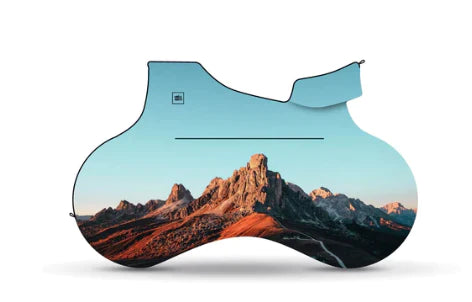


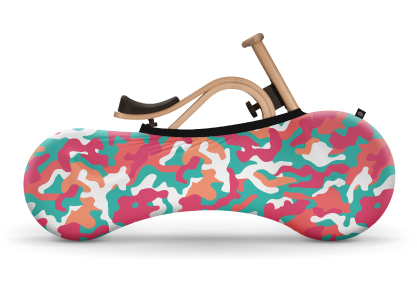
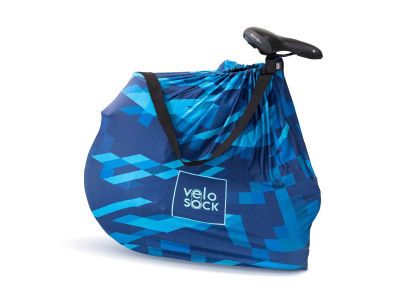


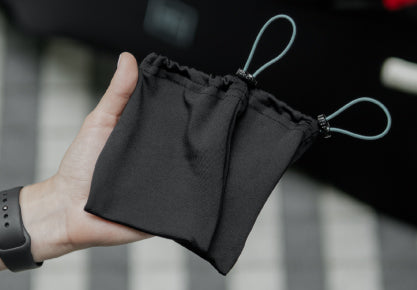


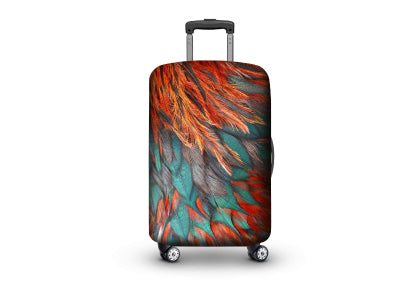




Leave a comment